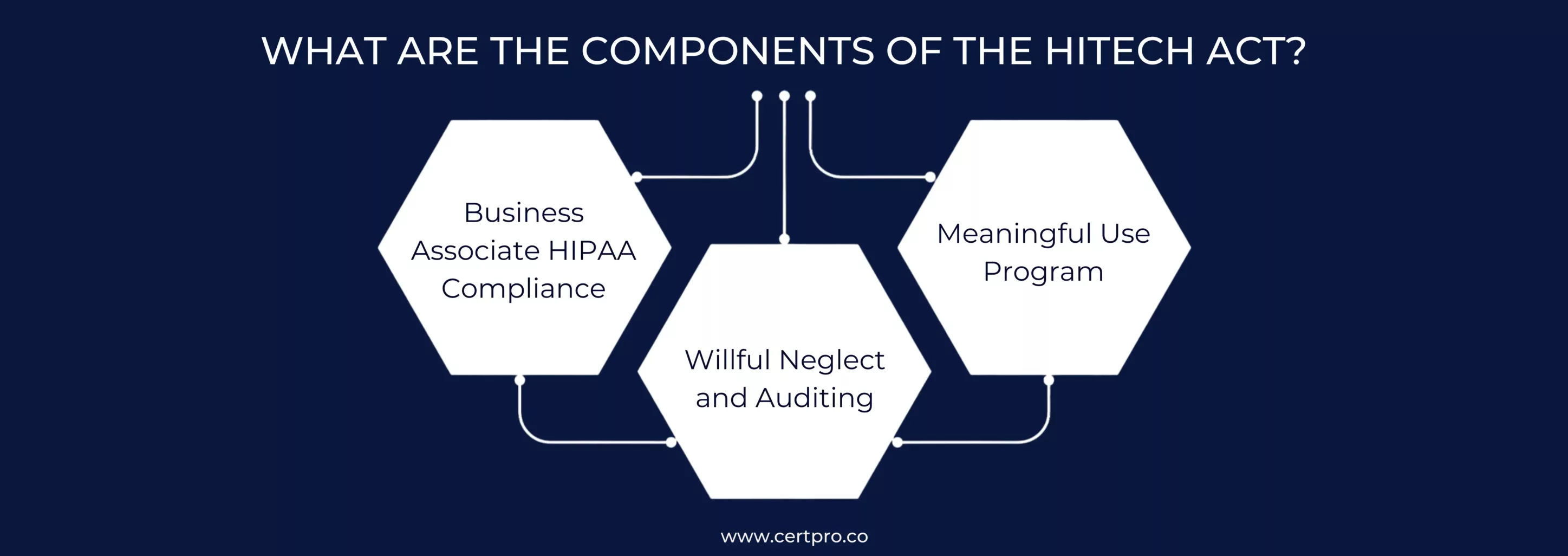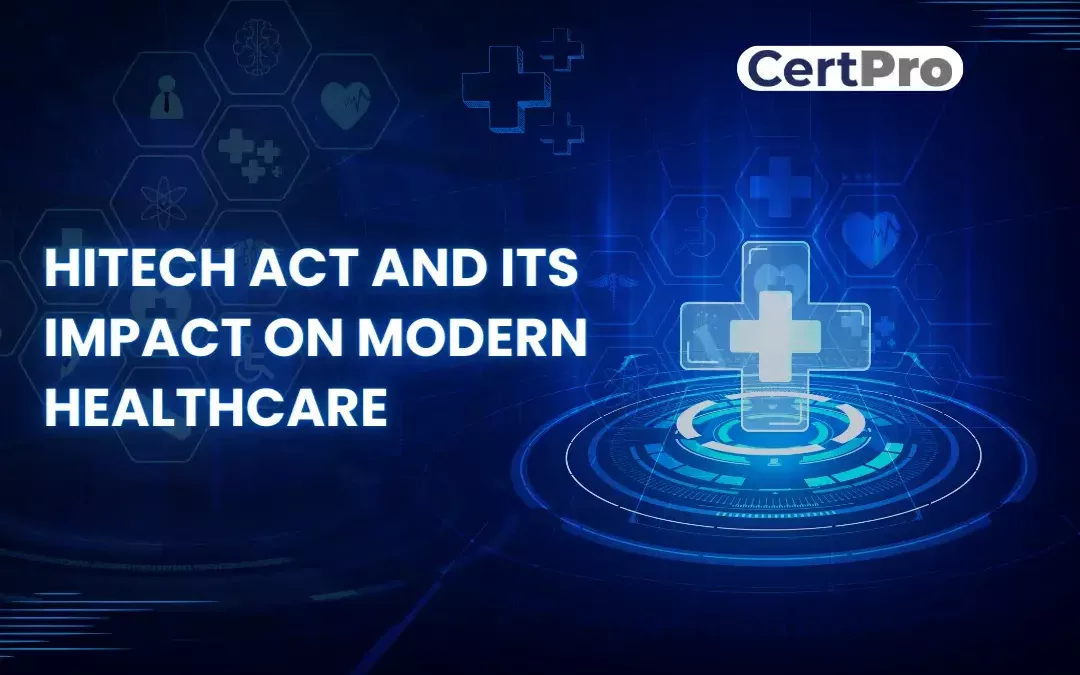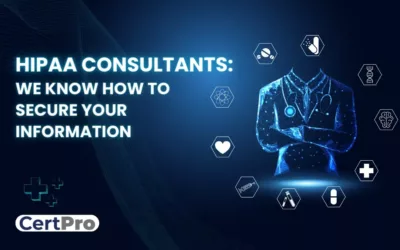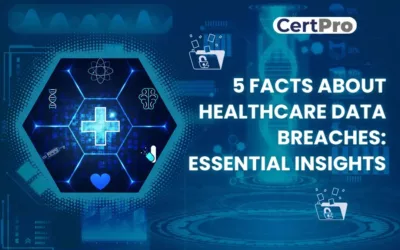In 2009, the Health Information Technology for Economic and Clinical Health or HITECH Act was signed to transform the American healthcare industry. The laws worked as a forward-thinking process of changing patient services. In this regard, the Patient Protection and Affordable Care Act (ACA) was signed in 2010. It changed Americans’ healthcare experiences. Therefore, the HITECH Act is built on HIPAA and strengthens an organization’s data handling and monitoring process. The act reduces the risk of legal formalities and ensures patients get notifications if their data breach happens. The act expands the scope of HIPAA rules in organizations and improves the efficacy of existing HIPAA laws.
The articles delve into the details of the HITECH Act in healthcare systems. It explores the prospect of improving data security in healthcare facilities.
WHAT IS THE HITECH ACT IN HEALTHCARE SERVICES?
In 2009, President Obama signed the act to ensure a robust security infrastructure for health information. The act aims to eliminate the inefficiencies in the healthcare system. Therefore, it included essential provisions for healthcare facilities to improve their services to achieve this aim. Technological advancements change practice in the modern world and impact healthcare services. In healthcare industries, software programs are used for clinical and administrative work. Thus, the ubiquitous use of technology accelerates the service delivery process. It provides comprehensive patient care. In addition, healthcare professionals get more control over their data through computing technologies. It enables an effortless patient-tracking process that supports patient privacy regulations.
Advancing Healthcare Technologies: The Act offers substantial financial incentives to adopt healthcare technologies. Hence, it ensures standard healthcare information-sharing processes nationwide. In this regard, meaningful use of technology signifies impactful technology. It improves the quality of services and provides data safety. Nowadays, healthcare professionals issue electronic prescriptions that ensure patient health information’s privacy and security. In addition, technological advancement enhances care coordination and follows public health standards.
Protecting Patient Data: The scope of HIPAA increased with the HITECH Act. It creates rigidity in following healthcare data protection and confidentiality rules. Similarly, healthcare providers must follow data security protocols. Thus, it ensures their patients’ details are not compromised. The HITECH Act makes compliance mandatory for healthcare providers. The process imposes liabilities for compliance violations. Therefore, the number of businesses required to follow HIPAA compliance expanded after the HITECH Act was enforced.
Promoting Interoperability: The Act bolstered the implementation of the Healthcare Information Exchange (HIE) system. In this regard, healthcare professionals share the patient’s details electronically. Therefore, the act created and supported an accessible and integrated healthcare information network. HIE is still functional in the evolving technological space. Again, the technology allows the service providers to access the patient’s details and history. Therefore, HIE helps in the decision-making process and coordinates the medical treatment process in emergencies.
WHAT ARE THE COMPONENTS OF THE HITECH ACT?
The main three components of the HITECH Act are:
Business Associate HIPAA Compliance: The act includes strict requirements for enforcing business associate agreements. Therefore, non-compliance penalties and accountabilities in breach notifications are increased.
Willful Neglect and Auditing: It mandates security audits and introduces penalties for data security violations.
Meaningful Use Program: The act implements meaningful programs to improve quality and safety. Thus, it reduces health disparities and enhances the efficiency of the healthcare system.

WHAT IS THE IMPORTANCE OF THE HITECH ACT?
In today’s modern world, thinking without computers and automation is unbelievable. Before the HITECH Act was enforced, electronic health records were used to manage data. The act boosts technological advancement in healthcare facilities and improves healthcare practices. Therefore, business leaders and industries comprehend the significance of the Healthcare HITECH Act. It recognizes the room for improvement. The act has five prime objectives to reshape the healthcare landscape. However, the first objective is to enhance the quality and efficacy of services. The act encourages the implementation of Electronic Health Records (EHRs).
The application of EHRs ensures error-free medical services and an effective operating process. The second objective is to engage patients and their families in the treatment process. Consequently, medical data and information access allow patients to make wise decisions. Thirdly, it improves care coordination. The process makes patient data available for authorized access and fosters better communication. Fourthly, the act helps maintain public health and prevents the outbreak of diseases. Furthermore, electronic data storage facilitates data availability, and healthcare providers can identify trends and take necessary actions. Lastly, it ensures the privacy and security of personal health information. In addition, the HITECH Act enables trust among the stakeholders.
Penalties: Non-compliance with HIPAA and the HITECH Act results in penalties, which can rise to $1.5 million per year due to violations of healthcare regulations.
Data protection and Risk Management: Both the HIPAA and HITECH Act provide guidelines for securing data. It reduces the incidence of data breaches and eliminates the risk of reputational damages.
Innovation Opportunities: Regulations and technological advancements reshape the industry and elevate standards. Therefore, adapting the HITECH Act in healthcare facilities can impact operational processes and strategies. The scenario is changing in the care service industries; patient-centered care is now the prime objective. Thus, the HITECH Act improves services and enhances growth.
WHAT IS HITECH ACT COMPLIANCE?
Healthcare providers must comply with the HITECH Act to continue their businesses. Complying with the act requires fulfilling specific requirements. The most vital requirement is adopting and utilizing an effective EHR process. Therefore, the goal is to implement EHRs and use them effectively to improve patient care and safety. The act expands HIPAA’s privacy and security rules for covered entities and stakeholders. In addition, the act introduces strict laws regarding the safe handling of patient data. Hence, the HITECH Act and HIPAA compliance checklist are crucial for continuing business.
HITECH Act compliance encompasses a defined protocol for data breach notifications. It notifies the affected individuals in cases of unsecured PHI data breaches. Compliance with the HITECH Act significantly improves HIPAA obligations, which positively impacts business associates. As per the act, business associates must implement administrative and technical safeguards. In addition, the associates are bound to report the covered entity regarding the breaches. The primary regulation signifies that associates must ensure PHI is secured, and violations of rules result in penalties.
WHAT ARE THE DIFFERENCE BETWEEN THE HITECH ACT AND HIPAA?
The main difference between the acts is the changes in penalty structure and obligations for breach notification. The Healthcare HITECH Act ensures that electronic health records are implemented to secure covered entities and business associates. Similarly, it will protect patient information and allow payment to be made. The act strengthens the HIPAA security rules for business associates. It makes them directly responsible for protecting health information. Furthermore, the HITECH Act allows patients to ask the covered entities to release their PHI. It informs the patient about the details shared with whom and what intention.
In Data Breach Notification, HIPAA applied the foundational guidelines for data breaches, while HITECH extended the legal liabilities. HITECH applies to organizations using PHI or ePHI systems and outlines the notification requirements of covered entities. The process requires HIPAA-covered entities to inform the affected individuals regarding the data breach. There is no specific time limit for reporting data breaches involving less than 500 people. For many affected individuals, the time limit is around 60 days from recognizing the breach.
Penalty Structures: The earlier structure stated that non-compliant organizations must pay fines. However, the HITECH Act introduced hefty penalties that forced the organization to fix its functionality. Therefore, by implementing a tiered penalty system, the organization avoids the risk of data breaches.
HOW TO SECURE YOUR HEALTHCARE DATA WITH CERTPRO?
Technological advancement has already changed healthcare services. Soon, more improvements will happen that might transform the healthcare sector into a customer-savvy system. In addition, the advancement of instrumentation and ancillary technologies improves the decision-making process, collaboration, communication, and care plan. Therefore, HITECH and the Affordable Care Act are working together to grow healthcare services and technologies.
Implementing the HITECH Act increased hospitals’ applications of EHR systems. In addition, the act expanded the privacy and security provisions contained in HIPAA regulations. Furthermore, you can get expert support through CertPro. The expert auditing and consulting team at CertPro can guide you in this regard. The practical suggestions and recommendations assure your adherence to HIPAA regulations. For more details and tailoring services, visit CertPro.co. We are here to support your business.
FAQ
What is PHI?
PHI stands for protected health information. The medical record provides information about the patient’s diagnosis and care plan.
What does Hitech prevent?
HITECH protects the patient’s data by controlling access to patient records. It notifies patients when data breaches happen and strengthens the enforcement of HIPAA regulations.
Who does the HITECH Act apply to?
The act applies to healthcare organizations that benefit from medical programs, HIPAA compliance, and business associates.
How does HITECH help your healthcare business?
It improves your organization’s data security and restricts unauthorized access to data. In addition, it enhances patient care and the treatment process and reduces the risk of data violations and penalties.
What are the challenges of staying compliant with HIPAA and HITECH?
Implementing HITECH and HIPAA can be challenging for the organization. Lack of resources and emerging cyber threats create difficulties in the implementation process. Furthermore, a continuous monitoring process requires financial fluency, and business associates must comply, which is difficult in practical situations.

About the Author
NICOLENE KRUGER
Nicolene Kruger, Regional Manager in South Africa, is an experienced Legal Counsel with expertise in compliance and auditing. Her strategic, solution-driven approach aligns legal standards with business objectives, ensuring seamless adherence to regulations.
BEST PRACTICES FOR DATA PROTECTION IN THE HEALTHCARE INDUSTRIES
In the healthcare sector, safeguarding sensitive information about patients is extremely important. Patient data includes personal details, medical histories, and treatment plans. Therefore, it must be protected and should be confidential. Thus, breaches not only...
HIPAA CONSULTANTS: WE KNOW HOW TO SECURE YOUR INFORMATION
Navigating HIPAA compliance can be complex; therefore, organizations seek advice from HIPAA consultants. These HIPAA experts have specific knowledge. They can help firms to understand the problematic standards of the Healthcare Privacy Act. In 1996, HIPAA was created....
5 FACTS ABOUT HEALTHCARE DATA BREACHES: ESSENTIAL INSIGHTS
The healthcare industry has experienced tremendous change in the current era of digital connectivity. Cyberthreats increasingly target the healthcare sector due to the wide range of sensitive data that is maintained online, including insurance details and medical...




